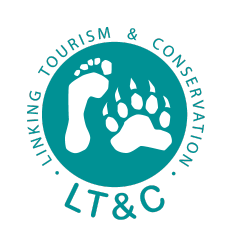Albania has become an increasingly popular tourist destination in recent years due to its stunning natural beauty, rich cultural heritage, and affordable prices. However, as tourism continues to grow in Albania, it is essential to promote sustainable tourism practices that preserve the country’s unique natural and cultural resources for future generations.
Strategic orientation for sustainable tourism development in Albania is related to:
- Preserve natural resources: Albania has a wealth of natural resources, including mountains, rivers, and coastlines. Sustainable tourism practices should be implemented to ensure that these resources are protected, and visitors can enjoy them without damaging them.
- Support local communities: Sustainable tourism should benefit local communities by creating job opportunities, supporting local businesses, and preserving cultural traditions.
- Promote eco-friendly practices: Encourage eco-friendly practices among tourists and businesses, such as reducing waste, conserving water and energy, and promoting recycling.
- Educate visitors: Promote responsible tourism practices among visitors, such as respecting local culture and customs, avoiding littering, and supporting local conservation efforts.
- Develop sustainable infrastructure: Develop infrastructure that is sustainable and environmentally friendly, such as public transportation, renewable energy sources, and sustainable buildings.
- Protect historical and cultural heritage: Albania has a rich cultural heritage that needs to be preserved. Sustainable tourism should promote the protection of historical and cultural landmarks and encourage visitors to respect local customs and traditions.
In summary, sustainable tourism in Albania should focus on preserving natural and cultural resources, supporting local communities, promoting eco-friendly practices, educating visitors, developing sustainable infrastructure, and protecting historical and cultural heritage. By promoting sustainable tourism, Albania can continue to attract visitors while preserving its unique natural and cultural resources for future generations.
Mission
RTI‘s mission is to position Albania as a sustainable destination ensuring long-term performance in the global tourism market by optimization of the sustainable tourism resources and value chain within the country and by promoting responsible travel products and practices in the international market.
Vision of the Responsible Travel Initiative
RTI’s vision is to make Albanian sustainable tourism offer a standard for all sectors and the flagship for development and promotion in the future. We aim to achieve this through private sector engagement, DMOs, and stakeholder coordination to move from mass tourism to more authentic added-value, integration of local value chains with global sustainable tourism trends, practices, and standards:
- more regulated and environmentally responsible products
- fair business practices for local communities and their integration in the value chain an
- adequate protection and rejuvenation of natural resources and cultural heritage
RTI will be focused on 5 main pillars of interventions as the Center of Excellence for the development of sustainable tourism in Albania:
a) Advocacy in policymaking and execution level to protect the environment and natural resources, cultural heritage, and local communities from the negative impact of travel products and help them to develop sound development plans in harmony with our traditions and residents’ culture and traditions.
b) Market Intelligence and innovation to ensure incorporation of international standards in products and destinations through capacity development and market research, monitoring, and data sharing with stakeholders for enterprises and communities.
c) Education and certification of travel sector enterprises and destination management organizations to incorporate responsible tourism in their business strategies.
d) Support the ecosystem to gain access to and promote Albania’s tourism brands in global networks and position itself in the regional and global market
e) Establish sustainable supply chains and enable collaboration between actors to maximize outcomes from interventions in the travel sector ecosystem
Provide technical assistance and know-how on access to finance and digitalization
RTI expects to have the following outcomes from these interventions:
• Improved sustainability and durability of the tourism sector and local destinations and development in harmony with local communities’ cultural heritage
• More decent jobs for local communities, women, and youth in Albania, making it a desired place to work, live and invest.
• Improved competitiveness in the global market and adequate profit from the tourism sector enough to rejuvenate the destination’s resources.



